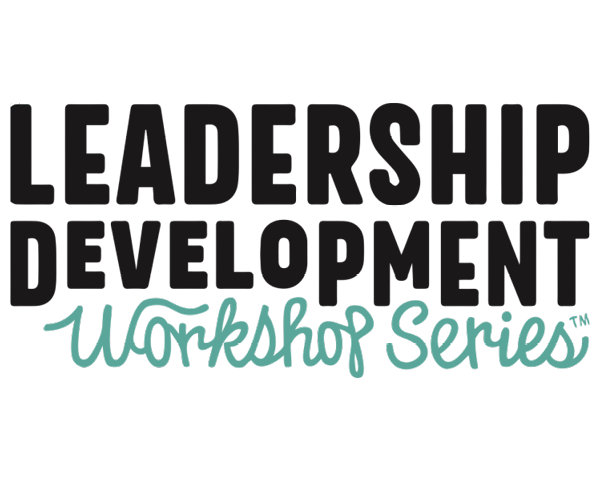The Power of Belief
How believing in the company, the product, the staff and yourself can help create a sustainable business.
This is not an essay on religion in the workplace. Nor is it about values or guiding principles, though these certainly overlap and underlie all of what I’m addressing here. This piece is about belief, in the singular sense of the word. It’s about what we—each of us as individuals—believe about the work, people, products and problems we’re engaged with in business every day.
1. Belief in the Business
Pretty much everything in an organization is going to be better when the people working in it believe in what the business is doing. When they believe, they work harder, they give more and they put a level of energy and passion into play that’s essential to creating anything great. With few exceptions, people want to believe that they’re part of a great organization, that their work makes a difference, that what they’re selling is a good product, that the organization they’re part of is generally doing good in the world. Our job as leaders is to make that scenario into a reality. I believe we can and that when we do, everything here—from feelings to finance to food quality—is going to be better.
Emily Hiber, a supervisor in our Next Door café, is a believer. She used to be a teacher, but has opted to work here instead. “I was talking to a friend of mine whose husband is super unhappy with his work,” she told me. “He’s not earning very much and they were feeling unfulfilled. I was saying that, while I’m not in the lap of luxury, my work pays me a livable wage and because I believe in it so much, and in the people that are involved with it, I’m fulfilled in what I do. My commitment is high because I believe in the people that I work for and with.”
She makes the point better than I do. Better people want to believe. Better belief makes for better energy in the business. When that energy is there, the little things that make a business great get noticed and acted upon because everyone’s attention is at a higher level. People feel like they make a difference and by acting on that feeling, they self-fulfill into a positive future. A future most of those who are just “laying stone” in organizations around the world think is probably some silly piece of utopian science fiction.
2. Belief in the Work
Even when people believe in what the organization at large is going after, there’s still a separate issue to address about whether they believe in the work in which they themselves, in the moment at least, are engaged. I’ve realized belatedly how much of a factor this is in the success—or lack thereof—of any project, product or initiative we undertake. Regardless of logic, data or how compelling a project may be to me, when the people who are doing the work don’t believe it has a reasonable shot at success, then it is pretty much doomed to failure. In any case, it’s wasted work, and none of us can afford much of that.
My job as a leader then is to be sure to build belief, not just get agreement to proceed. While I don’t think that belief alone will take the work from a failure to a success, I’m confident that it makes a big difference. I know that product quality won’t magically get better just because people believe. But low levels of belief will almost always bring down the effectiveness of what we’re doing. I’ve seen it time and again.
3. Belief in the Product
If people don’t believe in what they’re selling, sales are going to
slide. Ann Lofgren, currently at ZingTrain (but she has worked in most
every part of our organization over the past 11 years), told me that, “I
can’t go out and sell a product I don’t believe in. And when I do
believe in it then the experience for me isn’t ‘selling,’ it’s sharing.
Albeit, sharing for compensation. I have never, ever thought of myself
as a salesperson and, of course, now the reason is clear.”
Emily Hiber added, “I believe that I’m selling something good. When
people are upset because they think prices are too high, I’m okay
because I believe in what we’re selling. It’s solid and [I’m] not in
this bubble where [I] have to lie to the people [I’m] selling to.”
4. Belief in Self
I don’t think it takes an HR expert to tell us that we’re going to do better organizationally when we hire people who calmly, solidly believe in themselves. You could certainly call this self confidence, but I’m referring to a grounded, meaningful belief—not the cocky, overconfident, ultimately inauthentic airs that some people put on. Part of our work as leaders, is to actively help and support the people who work with us to believe in themselves. We need to help each staff member see that they have a solid shot at being successful, to know that they’re good enough, smart enough, strong enough and talented enough to do well in our world.
5. Belief in the Staff
We need to accept that the strength of our belief in our staff is a big factor in how well they end up doing. Here at Zingerman’s that plays out on a broad scale. All of our work with Open Book Finance, our extensive investment in training and other basic tenets of our business are based on the belief that everyone here is capable of doing great creative, highly effective work. Amy Emberling, managing partner at the Bakehouse, reminded me, appropriately, that one way the leader can help in this area is simply to take time to listen to others’ beliefs. That simple act can do wonders for people’s feeling of belonging. Their belief in themselves and in the organization usually goes up in a hurry.
6. What You Believe is (Often) What You Get
This one’s tricky. I’m not saying it to be Pollyannaish or anything. Good business planning is obviously based, to a great degree, on a real sense of what’s going on. But without losing touch with reality, I have found—through frequent errors on my part—that when I believe that something is going to be bad, it usually will end up being so. I’m not saying that just switching beliefs is enough to turn a terrible economy into a boom, or a bad dishwasher into your next dining room manager. But I do believe—based on a fair bit of reading, and a lot of years of experience—that it does make a big difference.
7. Belief in the Boss
If the team doesn’t believe in the coach, if the musicians don’t believe in the conductor, if the staff doesn’t believe in the boss, most everything else above will start to ring a bit hollow. It doesn’t mean that the business won’t run—just that a layer of richness, a positive piece of a big puzzle, a key ingredient, is missing. It’s like taking the vanilla out of your baked goods; the casual observer can’t see it and the average eater might not even notice at first, but the difference is there. Over time things become less and less compelling, and eventually the business will likely collapse.
8. Experience Builds Belief
One of the challenges that face all struggling businesses or teams is how to turn things around during tough times. Fair or not, the reality of the world is that organizations with established records of success are more likely to attract people who believe in themselves, in the organization and in the value of the work. Which, of course, increases the odds of the organization succeeding, which in turn attracts better people who believe ever more strongly in the work.
By contrast, getting people to believe in themselves and in the organization when things aren’t going all that well is a hard task.Anyone who’s worked in both successful and unsuccessful organizations will know that this is true. When the people who work in an organization don’t believe that their input is going to make a difference, they stop giving it. Somebody, somewhere, benefits from their ideas and creativity, but it’s rarely the business they were working in when they had them.
“Continuity breeds faith,” wrote Rosabeth Moss Kanter in her excellent book, Confidence. We can increase the odds of this happening by helping people focus on, remember and learn from their past successes. Pointing out the positive experiences that people have had—either together or as individuals—help them call on the memory of those past successes to keep going strong. Moss Kanter wrote that, “People who believe in themselves are likely to try harder and longer, thus increasing their chances of eventual success. But it’s also true that causality can run in the opposite direction, and might be more powerful in that situation: People who succeed are more likely to believe that their efforts in the future will pay off.”
Sometimes the leader’s work is, in essence, creating a garden where the sorts of interesting “heirloom” varieties of people he or she wants to work with can grow. While they’re not cookie cutter kind of people that some organizations turn out, when they do “bloom” the results are special. It’s not easy to get moving with this, but once one gets some momentum with this stuff, it’s pretty much a lock that it will work.
I believe that this focus on and exploration of belief can only make us a more effective organization. The effectiveness pays off big time in bottom-line results and in improvements in the energy and the quality of the experience we deliver to everyone with whom we interact. There’s little risk other than the initial awkwardness and discomfort that goes with getting into most anything new. I’ll close with a rather compelling quote from early 20th century writer, William Ralph Inge. “Faith,” he said, “is the choice of the nobler hypothesis.”
 Back to Library
Back to Library





